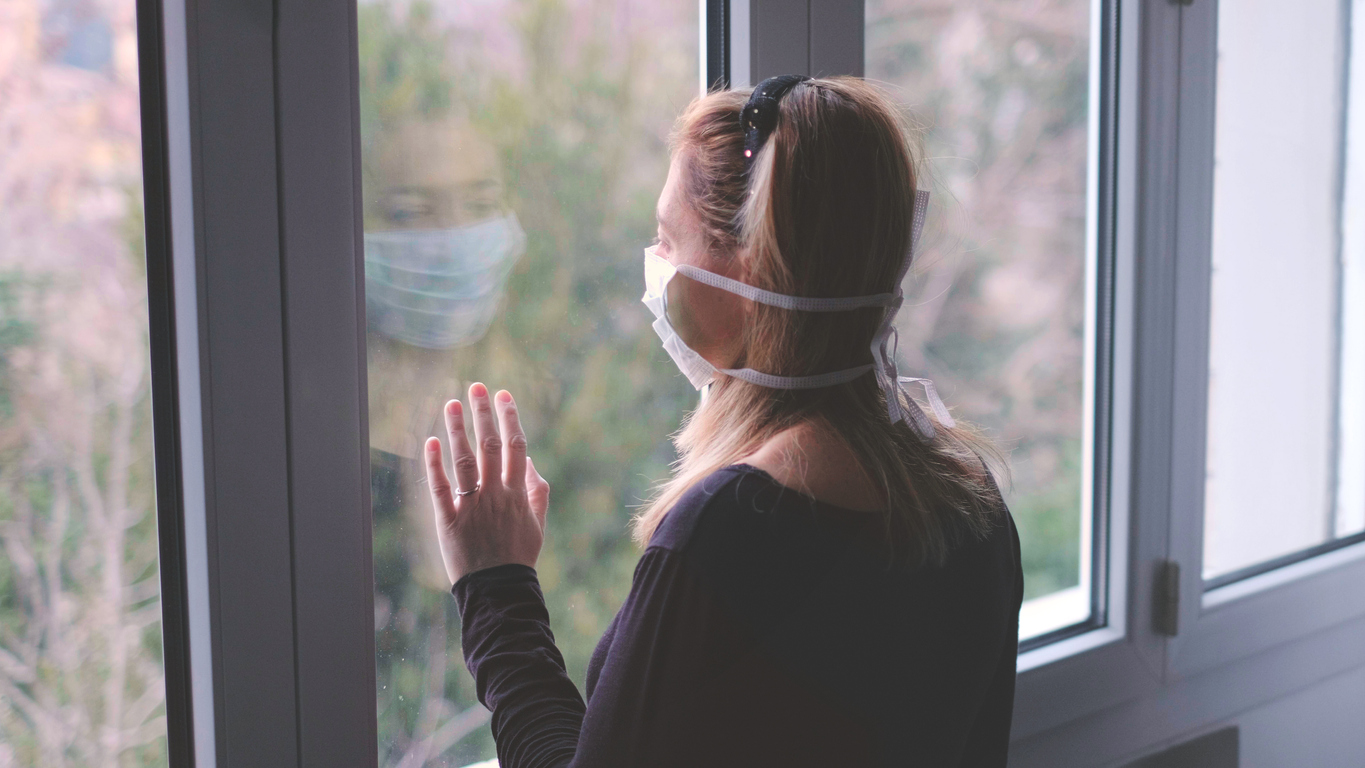
Let’s Talk About It
This month marks one year since the US has been dealing with Covid-19. Each day, the news media hits us with information related to deaths, hospitalizations, vaccines, financial woes, unemployment numbers, stimulus package updates, and the toll this pandemic has taken on peoples’ sense of well-being.
More and more, I hear, “I’m over this virus.” “I want my old life back.” “I miss my friends and family.” “I can’t take being so alone.” What all these comments have in common is this: people are struggling. It has been a year of staying six feet apart; of no hugs; of not seeing loved ones; of not vacationing. For some, this year has included eviction, lack of food, loss of a job and healthcare benefits, and perhaps, the death of a parent, friend, co-worker or relative.
This year, we have cheered for our first responders and those on the frontlines; we’ve applauded all the folks who worked their shifts at grocery stores and pharmacies. We have clapped for UPS drivers, postal workers, truckers and even our Amazon delivery persons, but nonetheless, it has been a hard and lonely year. Just this morning, I read an article entitled, “Lost touch: how a year without hugs affects our mental health.”
Taboo Topics
Mental health – one of those taboo subjects that many are unwilling to talk about. Another taboo subject: money, and especially debt. Merge these two topics and the silence is deafening. But not here, because mental health must be talked about, and the effects of student loan debt on an individual’s mental and physical health is real!
First, some definitions:
- Taboo – proscribed by society as improper or unacceptable.
- Stigma – a mark of disgrace or infamy; a stain or reproach, as on one’s reputation.
- Mental health – a person’s condition regarding their psychological and emotional wellness.
- Physical health – it includes fitness, agility, cardiovascular condition, endurance, muscular strength etc. It is a state of complete well-being in which a person is totally fit to perform daily routine activities without any hindrance.
- Financial security – the peace of mind you feel when you aren’t worried about your income being enough to cover your expenses. It also means that you have enough money saved to cover emergencies and your future financial goals.
While we know that conversations related to religion and politics often cause people to passionately (and sometimes, unkindly) explain their feelings, it is often due to an inability to politely agree to disagree and to respect others’ opinion. Such conversations can be loud and heated; hurtful and estranging, but when it comes to mental health and money, we tend to quietly avoid those topics altogether. Why is that?
Because we don’t want to feel uncomfortable. We shun situations that could lead to conflict, disapproval, criticism, judgement, rejection, and embarrassment. We don’t want to put our vulnerabilities on display. And sometimes, we view our own issues as personal weaknesses and failures.
The Mental Cost
We know that there are tangible consequences to having student loan debt: putting off marriage, buying a home, and having children, to name a few, but there is another less talked about effect; its impact on a borrower’s mental and physical health.
Studentdebtcrisis.org, the nation’s largest student debt advocacy organization, and Savi, a social-impact technology company, teamed up to survey over 58,000 student loan borrowers. The survey results were made available in December 2020 and the numbers speak to the harrowing influence student loan debt has on borrowers.
- 65% of borrowers are facing increased anxiety, depression, or stress due to the burden of student loan debt during the COVID-19 pandemic.
- 52% of borrowers rate their current financial wellness as poor or very poor since the COVID-19 pandemic began in March 2020. Only 21% rated their financial wellness as poor or very poor prior to the pandemic.
- 35% of healthcare workers with student loan debt have experienced reduced work hours caused by the COVID-19 pandemic.
- 52% of borrowers currently cannot afford their student loan payments.
Additionally, other survey statistics attest that student loan borrowers often have higher monthly loan repayment amounts that exceed their expenses for rent/mortgage payments, monthly food budgets, or health insurance costs.
Consider this data and no wonder student loan borrowers are struggling. Lost sleep, stress, muscle tension, upset stomach, rapid heartbeat, fatigue, headaches, and depression are some of the debilitating results of student loan debt. One survey indicated a rate of 1 in 15 respondents who considered suicide due to student loan debt.
A paper written by Elizabeth Sweet, Assistant Professor of Medical Social Sciences at Northwestern University, studied the association between debt, and psychological and general health outcomes in 8,400 young adults, ages 24 to 32 years old. Some key findings included:
- A rise in blood pressure, which is linked to an increased risk of hypertension and stroke.
- Higher levels of perceived stress and elevated depressive symptoms.
Seeking Help
Readers, there are things I want to say to you. I urge you to challenge the stigma surrounding conversations about mental health by talking with others. Seek therapeutic help. Make an appointment with your primary care physician. Talk with friends and family. I once read that when we stop talking about things, that is the moment when we stop moving forward. At Impact Capital Funds, we want to provide you with a solution…so you can keep moving forward, with a little less worry. Consider refinancing your student loans with us.
Conversations about mental health and finances create discomfort for so many, but we’d like to change that by offering empathy and compassion, as well as a financial solution. Yes, it has been a really hard year, but hopefully we have begun to see a little bit of light at the end of the tunnel. English theologian and historian, Thomas Fuller, is credited with the saying “It’s always darkest before the dawn.” The sun is rising here at Impact Capital Funds. Feel the warmth and know that we hope to brighten your financial future.



